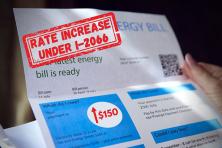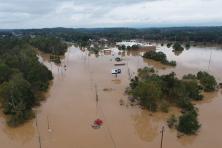Now’s the time to take it on together: Recovery, racism and resilience
A new report by over thirty global organizations including the World Health Organization and World Bank maps how the three crises of global warming, the pandemic and racism are human-caused and entwined. The report argues that there is a critical need to address all three crises together to achieve an economic recovery, and that 2020 is a “preview” of the long-term consequences if we fail to do so. Unfortunately, while countries and states look to rebuild their economies after a short-term drop in fossil fuel use, new research also shows that most are likely to lock in their reliance to more fossil fuels as they ramp up energy production, industry and transportation again unless they actively choose a different path to address inequities and invest in clean energy.
Racial, socioeconomic divides persist on air pollution
Decades of systematic environmental racism has forced many Black, Indigenous, and other communities of color to live in areas exposed to more air pollution and other toxins. But these disparities still aren’t common knowledge, especially among white Americans. A recent national poll shows that “60% of U.S. respondents...who identified as Black said they were very concerned about air-pollution exposure in their community versus 32% of white adult respondents.”
Unfortunately, breathing clean air remains a privilege afforded largely along racial and socioeconomic lines, and these issues of health and livability in communities of color may worsen further. A recently-released study found that, absent major global climate action, over 24,000 affordable housing units across the US will be exposed to significant flood risk by the year 2050 from high tides and storms due to sea level increases caused by global warming.
Will the new administration mean more executive action on climate?
The incoming Biden-Harris administration has begun mapping plans for addressing climate change throughout the government, with planning goals and programs for multiple agencies including the Departments of Agriculture and Transportation. The Biden White House will establish a National Climate Council, and has named Sen. John Kerry as the new climate czar. These actions show that the president-elect does not intend to rely on congressional action to address the climate crisis at the federal level, though some climate advocates have expressed skepticism regarding the appointment of a fossil-fuel friendly congressman to a public engagement position.
Solar rising
Announcements of new solar energy projects keep rocketing across our inboxes, a promising sign that the clean energy sector continues to help lift us out of the COVID-19 economic crisis. A 300 acre development was announced near Richland, WA earlier this week—a result of the 100% clean electricity law that the Washington Legislature passed in 2019. Mississippi Power is planning a ‘smart neighborhood’ with Tesla-built solar panels on every roof and smart networked batteries in all the buildings, and more solar projects are coming to former coal country.
One thing you can do
To take action on climate, folks often want more information on the problems and the solutions out there.
We offer ClimateCast as a way to get regular news summaries to educate, inform and encourage more engagement!
Invite a friend to sign up today





